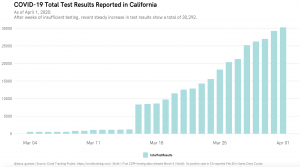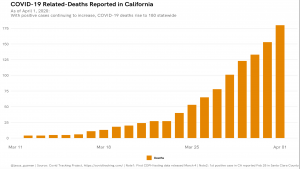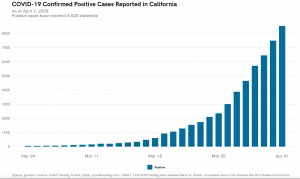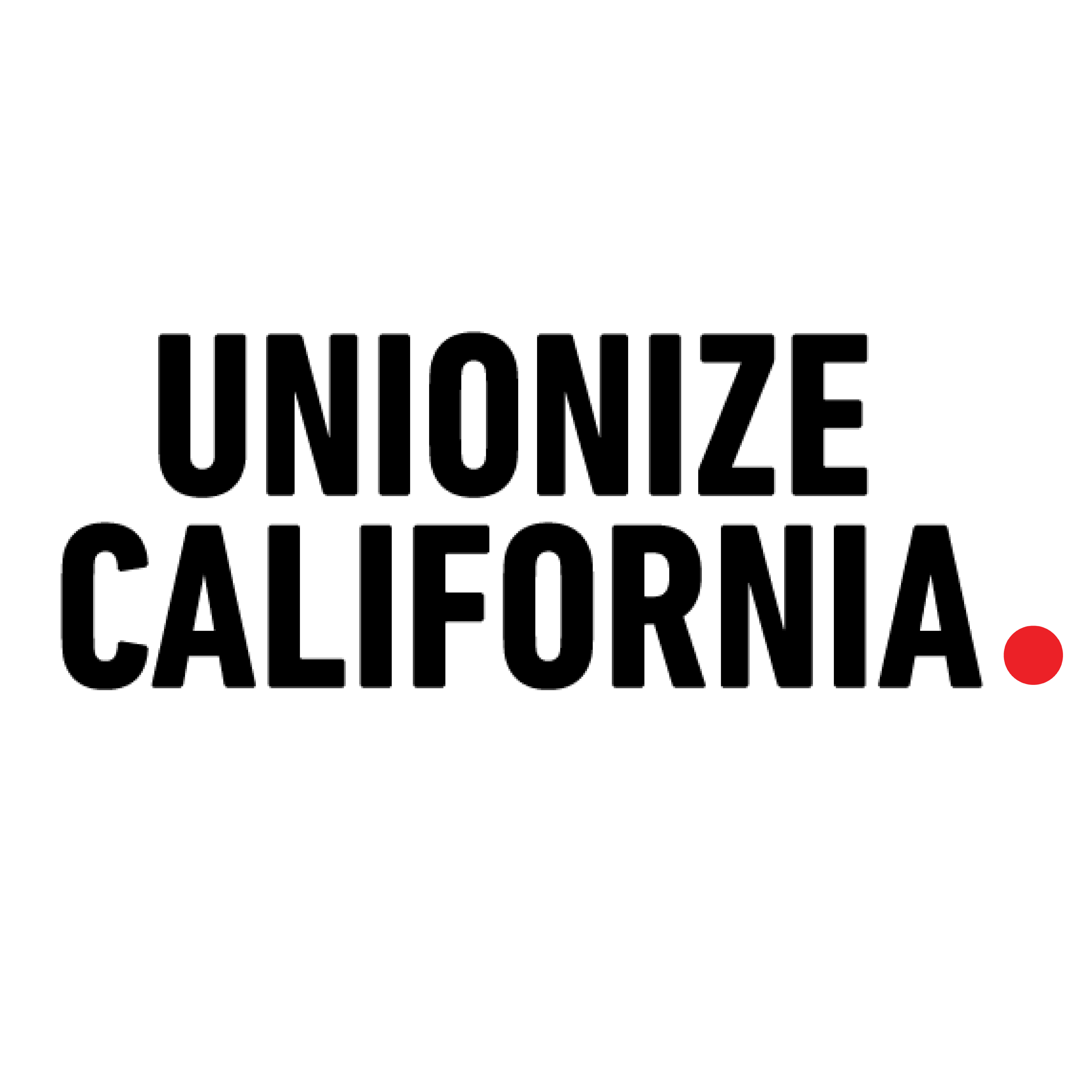Siblings, every Affiliate and Community Group in Napa and Solano Counties have different issues and needs that are important to our constituents. Trying to maneuver through Essential and Non-Essential employees and what that means to each individual worker and what roles that they can play is a daunting task for Labor and Management alike.
Our public sector workers are working to ensure that worker safety and workplace alternatives are in place. Our Building Trades are facing State mandated moratoriums on certain construction projects. Our private sector workers, like the grocery clerks and service employees also face issues surrounding safety distancing protocols. Our small business owners who employ our members are struggling to keep their doors open, and of course, our front-line public safety professionals, Police, Firefighters, Nurses and Hospital workers are working under extraordinary conditions trying to keep up with this global pandemic and will need everyone’s support moving forward.
Our Labor Council is working closely with affiliate Leaders, Elected officials and Staff to attempt to ensure that safety guidelines are followed, remote work opportunities explored but most critical, that a trusted stream of communication is maintained as we attempt to ensure the health and safety of every organization, both physical and economical. We are also working with community organizations that work with those with special needs to set up a process to identify these needs and ensure that whatever resources are available are identified without duplication of efforts.
We urge everyone to be patient, this is just the beginning and we have to allow our State, County and Local Governments to establish a new normal and urge those leaders to include Labor Representatives at every level of the process to help maintain consistency and make sure that the information that is put out is trusted by everyone. This will be critical as unprecedented actions are taken that will impact members who look to their Union Representatives for clarification.
We all wonder about the importance of the Shelter in Place guidelines and whether they are needed. The three graphs attached illustrate the importance of maintaining the social distancing protocols to attempt to flatten the curve.
Stay Safe and Go Wash Your Hands!



xxxxxxxxxxxxxxxxxxxxxxx
From: EDD Legislative Office
Sent: Friday, April 3, 2020 10:25 AM
Subject: EDD: Important Information for Your Constituents
Good Morning,
On behalf of the Employment Development Department’s (EDD) Legislative Office, thank you for your continued partnership as we provide information and essential benefits to workers during these unprecedented times.
Yesterday we published an important press release that discusses EDD’s response to COVID-19, answers your constituents’ most frequently asked questions, and provides additional information regarding the CARES Act (attached). I encourage you to read the release and share its details with your constituents.
We also want to clarify that individuals who are waiting for the availability of Pandemic Unemployment Assistance should monitor EDD’s website for updates on this federal program. At this time, it is incorrect to assume that individuals will be required to file for regular unemployment insurance and be denied these benefits in order to apply for Pandemic Unemployment Assistance. Specific instructions on how to apply for Pandemic Unemployment Assistance will be made available at a later date.
For many of your constituents, this is the first time they have applied for EDD benefits, including Unemployment Insurance. To assist these customers, the EDD has launched a COVID-19: Unemployment Insurance Claims web page that includes clear, easy to follow instructions for workers who have already filed for benefits. This website provides crucial, timely information for constituents who filed for benefits in recent weeks.
Thank you for your patience, commitment, and hard work on behalf of all Californians.
xxxxxxxxxxxxxxxxxxxxxx
PG&E Residential Customers Will Receive State-Mandated Climate Credit Reducing April Bills
Helps Residential Customers Under Stay-at-Home Orders Who May Be Using more Energy to Receive Lower Bills
PG&E residential customers will receive the California Climate Credit on their bills during the April billing cycle. The credit totals $62.91 for PG&E residential customers receiving both natural gas and electric service. For natural gas-only residential customers the credit will be $27.18, and for electric-only residential customers the credit will be $35.73.
This credit is especially timely given that many residential customers under stay-at-home orders may be using more energy than usual, which could increase their energy bills.
“During the COVID-19 public health crisis, we know that many of our customers may face uncertainty and financial instability due to school and childcare closures, job loss and other economic impacts. We want customers to be aware that the semi-annual California Climate Credit will help reduce their energy costs this month,” said PG&E’s Laurie Giammona, senior vice president and chief customer officer.
“We also have numerous tips, tools and programs for customers to help lower their energy usage and bills. We encourage customers to evaluate those options and take advantage of them,” said Giammona.
California requires power plants, natural gas providers and other large industries that emit greenhouse gases to buy carbon pollution permits from auctions managed by the California Air Resources Board. The California Climate Credit is customers’ share of the payments from the state’s program. The California Public Utilities Commission oversees the program. The state’s investor-owned utilities and Community Choice Aggregators administer the credits to customers.
Help managing energy usage
In addition to the Climate Credit, PG&E wants its customers to know it offers multiple rate plan options, assistance programs and tools to help manage their energy usage and costs, as many residential customers are spending more time at home during the statewide stay-at-home order and may be using more energy than usual.
Customers can view a personalized rate plan comparison at www.pge.com or by calling PG&E at 1-800-743-5000 to help determine which rate plan is best for their household. Customers can also view their daily energy usage patterns online. This information may help them determine which rate plan is best for them, or help make other behavioral changes in their energy usage to reduce their costs.
If a customer is experiencing financial hardships and has trouble paying their bill due to the economic impact of COVID-19, PG&E can help. The company continues to offer flexible payment plans to support customers during these difficult times. Customers can learn more at www.pge.com/helpmepay.
Moratorium on service disconnections
In addition, PG&E has implemented a moratorium on service disconnections for non-payment. This suspension applies to both residential and small business customers and will remain in effect until further notice. PG&E will also suspend Medical Baseline removals. Customers on the Medical Baseline program will not be asked to re-certify through a doctor or other eligible medical professionals for up to one year.
Customers can also take advantage of the following financial-assistance programs.
Save on monthly bills
PG&E’s California Alternate Rates for Energy (CARE) Program gives almost 1.4 million income-qualified households discounts on their energy bills.
Customers can apply for CARE online at www.pge.com/CARE. Applying is easy and only takes about five minutes. Qualifying customers will begin receiving the CARE program discount within their next billing cycle.
Separate from CARE, income-qualified households with three or more persons can apply for the Family Electric Rate Assistance (FERA) Program for an 18 percent discount on their electric bill.
One-time assistance
The federally-funded Low-Income Home Energy Assistance Program (LIHEAP) provides financial assistance to help offset eligible household energy costs, including heating, cooling and home weatherization expenses. To learn more, dial 211 for LIHEAP income guidelines and a list of participating agencies.
Receive energy support for medical conditions
Residential customers requiring electricity-powered medical equipment may qualify for Medical Baseline, which is not based on income. Per month, eligible customers can receive an extra baseline allotment of 500 kilowatt-hours of electricity and/or 25 therms of gas. Certification by a doctor is required.
No disruption in gas or electric service is anticipated due to the public health crisis. For more information, please visit www.pge.com/covid19 to read more about PG&E’s response to the virus.
Email Currents at Currents@pge.com.
xxxxxxxxxx
DMV Helps Californians with Expiring Driver Licenses
Seniors and other drivers can avoid required office visit for renewal during COVID-19 pandemic
Sacramento – The California Department of Motor Vehicles today is announcing that seniors with an expiring driver license will receive a 120-day extension in the mail during the COVID-19 pandemic. Also, those with safe driving records whose last DMV visit was 15 years ago will not be required to renew in person for the next 60 days and will be able to renew online or by mail.
“Today’s actions ensure hundreds of thousands of Californians can keep their driver license current while following the state’s stay at home request,” DMV Director Steve Gordon said. “The health and safety of our employees and customers is the DMV’s top priority. We encourage customers to take advantage of our online services whenever possible, including for eligible driver license or vehicle registration renewals.”
120-Day Extension for Drivers 70 and Over
The DMV is providing a 120-day extension to Californians age 70 and older with a driver license that expires from March 1 to May 31, 2020. This action ensures this vulnerable group can avoid a DMV office visit during the COVID-19 pandemic.
California law requires drivers age 70 and older to visit a DMV field office to renew their license but gives the DMV authority to issue extensions – no individual action required. Eligible drivers will receive a paper license extension in the mail beginning in the next two weeks. The expiration dates will reflect a minimum of 120 days before renewal is required. Around 860,000 seniors visit DMV offices every year for the required in-person license renewal.
Waiving In-Person Renewals for Eligible Drivers and Identification Cardholders
Governor Gavin Newsom signed an Executive Order on March 30 temporarily waiving for 60 days the requirement for Californians with safe driving records to renew their driver license in-person at a DMV field office. The Executive Order also temporarily waives required in-person renewals for identification cards.
The DMV is also completing the programming necessary so that individuals who meet the criteria will be able to complete their renewal online or by mail beginning Wednesday, April 8.
Duplicate Driver License
The DMV now offers Californians the option to use its online services to request a duplicate driver license if theirs was lost or stolen and does not expire within 30 days. A duplicate license costs $30. Approximately 1 million Californians request duplicate licenses each year.
Essential DMV Services Continue
The DMV continues to provide essential services via mail, online, kiosks, its call center at (800) 777-0133, available business partners and, soon, virtually to process critical transactions, including eligible driver license and vehicle registration renewals, during the COVID-19 pandemic. The DMV encourages customers to use another service channel if their transaction does not require an office visit. These services are listed on the DMV Online Services and DMV Anytime webpages and include change of address, replacement sticker or registration card, notice of transfer and release of liability, and vehicle license fee refund requests, among others.
Starting April 2, the Virtual Field Office at virtual.dmv.ca.gov can process title transfers and complex vehicle registrations that would otherwise have to be accomplished in an office. More services will be offered through the Virtual Field Office in the coming weeks.
The measures to help Californians with expiring driver licenses are the latest DMV actions during the coronavirus pandemic, including:
· Temporarily closing field offices. Following deep cleaning, expansion of virtual services and development of new protocols, the DMV soon will offer in-person services in each region. Information on office openings will be announced by DMV in the near future.
· Requesting California law enforcement to exercise discretion, for 60 days beginning March 16, before issuing citations for driving with a recently expired license or vehicle registration.
· Canceling all behind-the-wheel drive tests to honor social distancing guidelines.
· Suspending extended office hours and Saturday service
xxxxxxxx
The Paycheck Protection Program (PPP)
The Paycheck Protection program in the Coronavirus Aid, Relief, and Economic Security (CARES) Act that was just passed by Congress is intended to assist business owners and employees. When implemented, there will be many new resources available for small businesses, as well as certain non-profits and gig workers. The links and guide below provide information about the major programs and initiatives that are available from the Small Business Administration (SBA) to address these needs. Payroll Masters will provide you with all the reports you will need.
Emergency Economic Injury Disaster Loans (EIDL)
The CARES Act, expands eligibility for access to Economic Injury Disaster Loans (EIDL) to include Tribal businesses, cooperatives, and Employee Stock Option Plans (ESOP) with fewer than 500 employees or any individual operating as a sole proprietor or an independent contractor during the covered period (January 31, 2020 to December 31, 2020). Private non-profits are also eligible for both grants and EIDLs. Payroll Masters will provide you with all the reports you will need.

